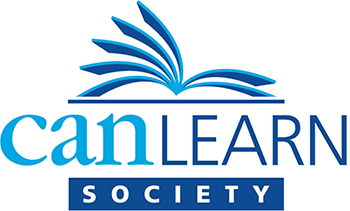By Krista Forand, M.Ed.
Lately, I have had some requests to write a blog about issues related to sharing your child’s ADHD diagnosis with others. With the help from some of my colleagues, here are some things to keep in mind when considering telling others about your child’s ADHD diagnosis.
Weigh the pros and cons and consider why it may be important to tell a particular person. Ask yourself what the benefits would be of having this person know and what may be some of the risks. It may be important for your child’s school to know so that they can put supports and accommodations in place that will allow your child to be more successful in the classroom. It may not be necessary to inform others who do not interact with your child on a regular basis. Consider what role that person plays in your child’s life and whether them knowing would be beneficial to your child.
Describe your child’s challenges rather than simply say that he/she has ADHD. You can’t guarantee that when you use the term “ADHD” that the other person has the same understanding as you. ADHD is one of the most misunderstood diagnoses out there and unfortunately, many people do not take it seriously unless they have had a personal experience with it. It’s best to describe the challenges that your child experiences. For example, a parent may say, “ADHD makes it hard for him to sit still and control his impulses”, or “she may look like she’s listening, but she could miss a lot of what you are saying”. It is also recommended to then describe what kinds of things help your child. This gives the person some specific things that they can do to increase positive interactions with your child. For example, a parent may say, “he does best when he is given a ten minute and five minute warning before changing activities” or “after you tell her something, ask her to repeat it to check and see if she understood you”. Both of these strategies make sharing the diagnosis less about the “ADHD” label and more about the kinds of things your child struggles with and the kinds of things others can do to help him/her.
Educate yourself and your child about ADHD. This will be very important, as you will likely run into people who have strong opinions about the causes of ADHD, whether ADHD exists in the first place or whether medication is an appropriate treatment for children. You may even receive not-so-pleasant comments about your parenting skills, as this is often an easy place for people to start when they are criticizing something they know very little about. If you and your child are ready to have these conversations they will be less difficult. That’s why knowing about ADHD is so important. Also, consider having a few resources (e.g., favourite books, podcasts etc.) in your back pocket to offer those who seem genuinely interested in learning more about ADHD. Knowledge is power! At the end of the day, you will also need to consider how far you want to go with conversations with certain people. A family member who interacts with your child regularly may be a person that you spend more time talking with as compared to someone who is not as involved with your child. Sometimes debating with people is not worth it and you can use your energy for more positive things. Don’t feel like you have to engage in every conversation that someone starts with you, particularly if you or your child are feeling threatened or disrespected.
Involve your child in the process and help him/her to advocate for himself/herself. If you are sharing your child’s ADHD diagnosis with others, it is a good idea to involve your child in the process so he/she can learn how to advocate for himself/herself. This is why education about ADHD is so important. Have conversations with your child about his/her strengths and challenges. Speak with your child about the importance of taking his/her ADHD seriously and not using it as an excuse, but rather an explanation for why he/she may have difficulty with certain tasks and in certain situations. When considering telling others about your child’s ADHD diagnosis ask your child what he/she thinks about it and involve him/her in the process. Don’t share information about your child with another person in front of him/her, as if your child were not present. Include your child in the conversation and support him/her in explaining to the other person what it is like to have ADHD.
These are a few things to keep in mind when sharing your child’s ADHD diagnosis with other people. As you gain more experience sharing with others, you may find different ways of communicating that work better than others. Experiment, involve your child in the process and know when to leave the conversation alone if someone continues to disagree with you.
I would like to thank the following professionals for contributing their ideas to this blog post: Dr. Michael Zwiers, Sue Williams Brawn, Tina Parsons, Dr. Meadow Schroeder. I greatly appreciate the opportunity to work with such knowledgeable and thoughtful people.
Krista Forand, M.Ed.
Krista has worked in various roles with the CanLearn Society (formerly Calgary Learning Centre) since 2009. She is currently working with the clinical team as a registered psychologist, providing assessments and group interventions for individuals with learning and attention difficulties. In 2014, Krista obtained her graduate degree from the University of Calgary where she cultivated her interest in learning disabilities and attention disorders. She believes in the therapeutic effect of psychoeducational assessment and how this process can empower individuals and families to take control of their lives, by understanding their unique way of being in the world.
